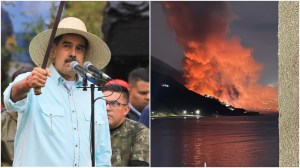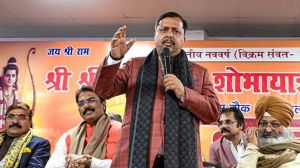UPA knocks POTA, not its teeth
Replacing the Prevention of Terrorism Act and yet underlining that it is serious about tackling terror, the UPA government has sent to the P...

Replacing the Prevention of Terrorism Act and yet underlining that it is serious about tackling terror, the UPA government has sent to the President its ordinance amending the Unlawful Activities Prevention Act.
That ordinance has gone with one on repealing POTA and the President is expected to clear them today.
The Unlawful Activities Prevention Amendment Ordinance, 2004, introduces 54 amendments to the 1967 law.
The ordinance incorporates several key clauses8212;ad verbatim8212;from the repealed POTA law including the definition of a terrorist act, punishment of the terrorist act, punishment for raising funds for a terrorist act and punishment for harbouring terrorists.
It advocates the same punishment for being member of a terrorist gang or organisation and for holding the 8216;8216;proceeds of terrorism.8217;8217; However, it expands on the offence relating to membership of a terorist organisation. It also adds a new definition of a 8216;8216;terrorist gang8217;8217; that was earlier did not feature in the repealed POTA law. 8216;8216; A terrorist gang means any association, other than terrorist organisation, whether systematic or otherwise, which is concerned with, or involved in, terrorist act.8217;8217;
The key areas where the ordinance attempts to dilute the 8216;8216;draconian8217;8217; provisions of POTA are:
8226; In forfeiture of property linked to terrorism, unlike in POTA, the ordinance sets a time limit of 60 days for the Designated Authority the DGP to either 8216;8216;confirm or revoke8217;8217; the seizure order.
8226; The ordinance does away with the POTA clause under which suspects could be detained for three months without charges and three more months if allowed by the special judge.
8226; The suspect can now apply for bail as per criminal law8212;under POTA, bail was only permissible after one year.
8226; Under POTA, confessions made before a police officer not lower in rank than that of an SP were admissible during trial. This has been scrapped.
8226; Provision of special POTA courts also dispensed with.
While POTA had an entire chapter, Chapter V, dealing with 8216;8216;interception of communications,8217;8217; the ordinance summarily deals with it by stating that evidence collected through interception of wire, electronic or oral communication under the provisions of the Indian Telegraph Act, 2000 or any other law for the time being in force, shall be admissible as evidence.
This, in effect, provides tapping of communication on grounds of national security.
8226; The new ordinance also restricts the formation of a review committee to the Central Government and not the state.
8226; The ordinance specifies the composition of the review committee: it will be chaired by a sitting or a retired High Court judge and have two other members and 8216;8216;possessing such qualifications as may be prescribed.8217;8217;
- 01
- 02
- 03
- 04
- 05































